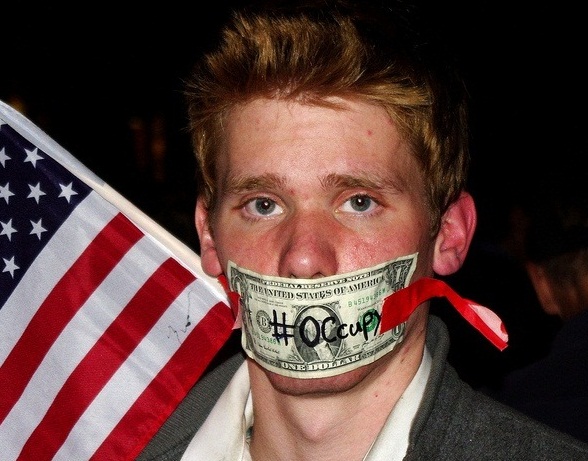Press Release
10 December 2012 - Washington DC, New York, Johannesburg, Montevideo and Rio de Janeiro.
 A task force of human rights organizations and networks today launched a website devoted to highlighting the globally growing concern about the impact of financial regulation on human rights.
A task force of human rights organizations and networks today launched a website devoted to highlighting the globally growing concern about the impact of financial regulation on human rights.
The financial crisis' harm to enjoyment of human rights worldwide is well documented. Livelihoods, poverty, human rights, freedom of expression and mobility, identity and sexuality have come under pressure and been radically altered since the financial crisis.
“Yet, financial regulation continues to be treated as if human rights did not need to be part of the discussion,” said Aldo Caliari, of Center of Concern, which coordinates the initiative. “We have set out to change that.”
The website –accessible at www.rightingfinance.org-- was developed by the “A bottom up approach to righting financial regulation” initiative. Its members are Association for Women’s Rights in Development (AWID), Center for Economic and Social Rights (CESR), CIVICUS Alliance, Center of Concern, ESCR-Net, Development Alternatives with Women for a New Era (DAWN), IBASE, Social Watch and the Norwegian Center for Human Rights.
Especially since the eruption of the Great Recession in 2008, human rights experts, monitoring bodies, social movements and diverse civil society organizations have become increasingly vocal on the connections between finance and human rights. Earlier this year, a UN committee in charge of monitoring economic and social rights issued a letter to governments expressing concern about the protection of economic and social rights in the context of austerity programs implemented in the wake of the crises. Women’s organizations have found that women bear the brunt of these programs which eliminate or reduce social services.
In the European context, the budget cuts are steps backward in fulfilling human rights commitments, and come in the throes of budgetary commitments of some EUR 4.5 trillion made to rescue financial institutions. “Unforeseen levels of spending for bank rescues highlight the unacceptable injustice of not placing human rights at the heart of the financial regulation process –from beginning to end,” said Nicholas Lusiani, of CESR.
The website will serve to capture views from a human rights perspective on all areas of financial regulation, such as financial sector taxation, derivatives regulation and the impact of hedge and private equity funds. It is being launched on a highly symbolic day that commemorates the anniversary of the Universal Declaration on Human Rights. This year’s celebrations focus on the human rights principle of participation in the decisions which affect people’s lives—particularly pertinent as people worldwide fight to engage in better oversight of global financial markets. “Today of all days we should remember actions and inactions by governments in regulating financial markets are to be judged by the same Universal Declaration on Human Rights that applies to any other government (and third parties) activity,” said Roberto Bissio, of Social Watch.
The website can be accessed at www.rightingfinance.org
Contacts:
Center of Concern: Aldo Caliari, on aldo@coc.org or +1 202 635 2757
Center for Economic and Social Rights: Luke Holland on lholland@cesr.org, or + 1 718 237 9145
Association for Women’s Rights in Development: Alejandra Scampini Franco on ascampini@awid.org, or +598 2 604 6506